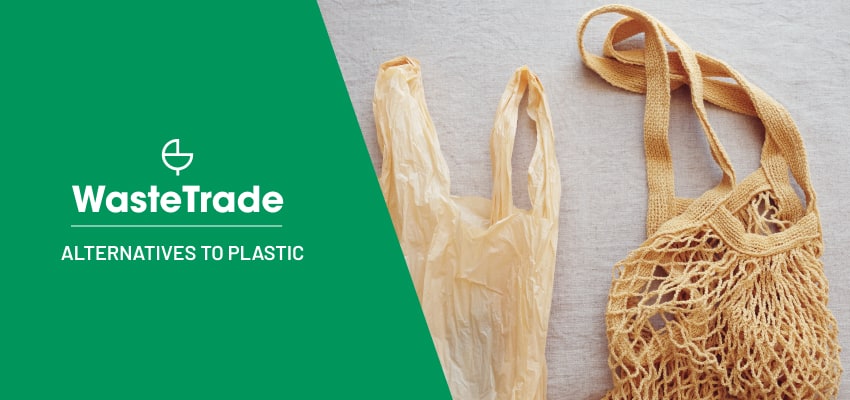Alternatives to Plastic

Plastic is a ubiquitous material that has revolutionized modern life in many ways, from упаковка to будівництво. However, the downside of its convenience and affordability is that it has become a major environmental problem. According to a report by the World Economic Forum, there could be more plastic than fish in the ocean by 2050 if we continue to produce and dispose of plastic at the current rate. The good news is that there are many plastic alternatives available that are sustainable, eco-friendly, and can help us reduce our plastic consumption.
In this article, we will explore some of the most popular plastic alternatives and their benefits.
Glass

Glass is one of the oldest and most widely used materials in the world. It is made from natural raw materials such as sand, soda ash, and limestone, which makes it a sustainable and eco-friendly choice. Unlike plastic, glass can be recycled infinitely without losing its quality, and it does not contain harmful chemicals such as BPA.
Glass is also non-reactive, which means it does not leach chemicals into the food or drink it contains. This makes it an ideal alternative for food and beverage упаковка, such as bottles, jars, and containers.
Метал

Metal is another popular alternative to plastic. It is durable, long-lasting, and can be recycled infinitely without losing its quality. Metal can be used for a variety of products, from kitchenware to building materials.
Aluminum, for example, is a lightweight and recyclable metal that is commonly used for beverage cans. It takes 95% less energy to recycle aluminum than to produce it from raw materials, making it a more sustainable choice.
Папір

Paper is a renewable and biodegradable material that can be used for a variety of products, from packaging to stationery. Unlike plastic, paper decomposes naturally, making it a more eco-friendly option.
However, it is important to note that paper production can also have negative environmental impacts, such as deforestation and water pollution. To minimize these impacts, it is important to choose paper products that are certified by reputable organizations such as the Forest Stewardship Council (FSC).
Bioplastics

Bioplastics are a type of plastic made from renewable resources such as corn starch, sugarcane, or potato starch. They are designed to biodegrade more quickly than traditional plastics, reducing their environmental impact.
However, bioplastics also have some drawbacks. For example, some bioplastics can only be composted in industrial composting facilities, which are not available in all areas. In addition, some bioplastics still contain harmful chemicals and may not break down completely in the environment.
Natural Fibers
Natural fibers, such as cotton, hemp, and bamboo, are renewable and biodegradable materials that can be used for a variety of products, from clothing to packaging. They are also compostable, meaning they can decompose naturally without leaving harmful residues.
However, it is important to choose natural fibers that are grown and processed sustainably, as some conventional cotton and bamboo production methods can have negative environmental impacts.
Висновок
There are many plastic alternatives available that are sustainable, eco-friendly, and can help us reduce our plastic consumption. From glass and metal to paper, bioplastics, and natural fibers, there are many options to choose from depending on your needs and preferences. By choosing plastic alternatives, we can all play a part in reducing our environmental impact and creating a more sustainable future.
